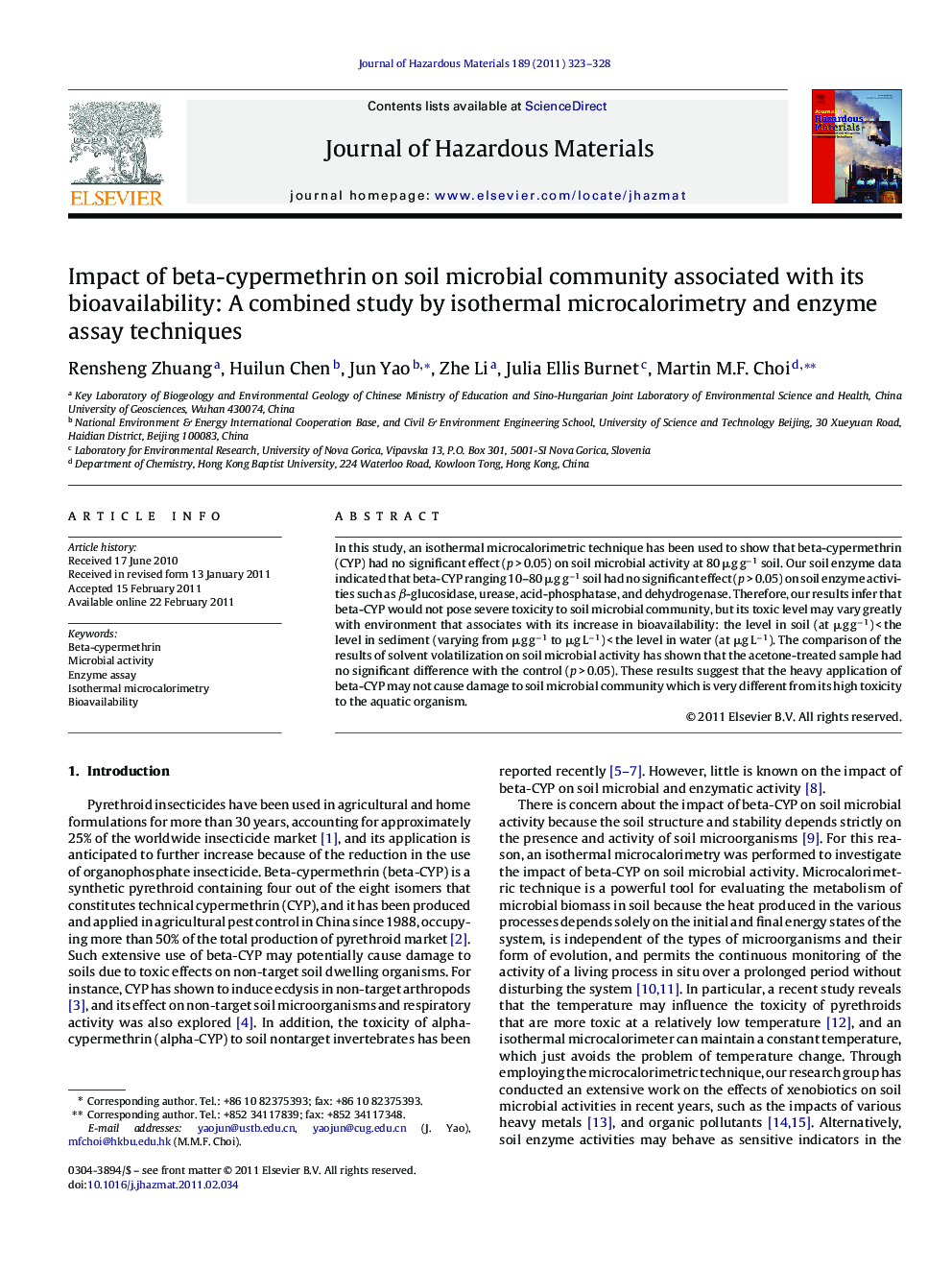| Article ID | Journal | Published Year | Pages | File Type |
|---|---|---|---|---|
| 579375 | Journal of Hazardous Materials | 2011 | 6 Pages |
Abstract
In this study, an isothermal microcalorimetric technique has been used to show that beta-cypermethrin (CYP) had no significant effect (p > 0.05) on soil microbial activity at 80 μg gâ1 soil. Our soil enzyme data indicated that beta-CYP ranging 10-80 μg gâ1 soil had no significant effect (p > 0.05) on soil enzyme activities such as β-glucosidase, urease, acid-phosphatase, and dehydrogenase. Therefore, our results infer that beta-CYP would not pose severe toxicity to soil microbial community, but its toxic level may vary greatly with environment that associates with its increase in bioavailability: the level in soil (at μg gâ1) < the level in sediment (varying from μg gâ1 to μg Lâ1) < the level in water (at μg Lâ1). The comparison of the results of solvent volatilization on soil microbial activity has shown that the acetone-treated sample had no significant difference with the control (p > 0.05). These results suggest that the heavy application of beta-CYP may not cause damage to soil microbial community which is very different from its high toxicity to the aquatic organism.
Related Topics
Physical Sciences and Engineering
Chemical Engineering
Chemical Health and Safety
Authors
Rensheng Zhuang, Huilun Chen, Jun Yao, Zhe Li, Julia Ellis Burnet, Martin M.F. Choi,
